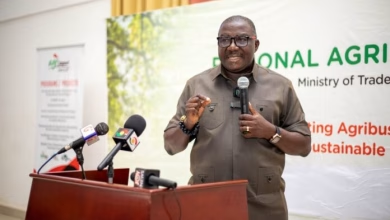Former Executive Vice President of Unilever Ghana and Nigeria, Yaw Nsarkoh, has issued a stern warning to President-elect John Dramani Mahama regarding his pledge to abolish certain taxes, urging caution in light of the country’s current economic challenges.
Nsarkoh described the proposed tax cuts as a “dangerous road to hell,” despite recognizing that Mahama’s intentions may be well-meaning. The former president, in his bid for re-election, made a social contract with Ghanaians that includes promises to eliminate controversial taxes introduced by the ruling New Patriotic Party (NPP). Among the taxes Mahama pledged to scrap are the E-levy, the Betting Tax, the COVID levy, and the emissions levy.
Mahama emphasized that these taxes, which were implemented under what he called “bizarre circumstances,” would be abolished within the first 90 days of his presidency to ease the financial burden on Ghanaians, a promise that especially resonated with the youth engaged in betting, leading to significant support for his campaign.
However, Nsarkoh expressed concerns about the feasibility of such promises, particularly in the context of Ghana’s struggling economy. He argued that abolishing key revenue-generating taxes, such as those identified by Mahama, could worsen the country’s economic crisis.
Nsarkoh pointed out that the taxes targeted for abolition are projected to generate GH¢6.4 billion by 2024. He warned that closing such a substantial revenue gap would be a monumental challenge, if not impossible, in the short term.
“Revenue from the 3 JDM ‘targeted taxes’ comes to GHC6,409mn in 2024. That kind of hole cannot just be filled ‘from somewhere else!’ Slow down on populism, tax policies can be scientifically modeled. Do so. We are bankrupt,” Nsarkoh said in a series of posts on social media.
Nsarkoh further criticized the populist nature of Mahama’s tax-cutting promises, noting that they lacked scientific backing. He warned that reckless tax policy changes could deepen Ghana’s financial troubles and urged the incoming government to slow down and consider the long-term impact of such decisions.
“Precipitate & populist tax cuts are a dangerous road to hell, one paved with several good intentions! New governments had better beware,” Nsarkoh added. “On what econometric model, anywhere in this world, can the elimination/reduction of a betting tax be justifiable, in a bankrupt country? Don’t take false steps!!”
Nsarkoh’s comments align with those of other prominent figures, including Franklin Cudjoe, President of IMANI Center for Policy Education, who previously opposed the scrapping of the betting tax and instead suggested a reduction in the rate. Prof. Peter Quartey, Director of the Institute of Statistical, Social, and Economic Research at the University of Ghana, has also expressed similar concerns, warning that eliminating taxes like the betting tax could be a major misstep for the economy.
